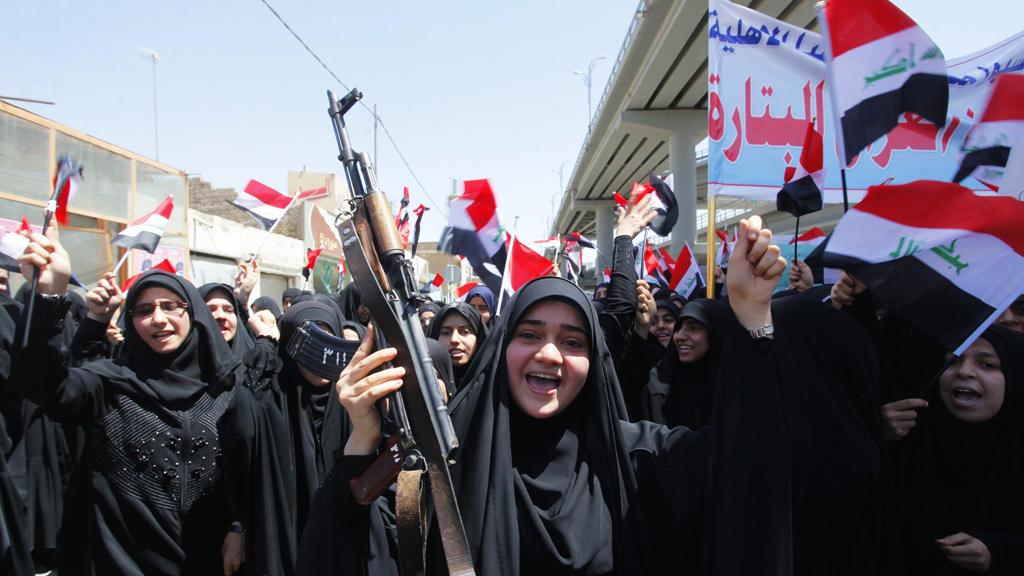Sunni militants attack Iraq’s biggest oil refinery
With fighting still ongoing, Iraqi militants have reportedly taken control of most of the Baiji oil refinery in northern Iraq.
Photo: Iraqi forces clash with militants in Kirkuk (R)
Iraqi security sources and refinery employees said that insurgents began firing at the refinery in the early hours of Wednesday at 4am (1am GMT).
An official at the refinery said “The militants have managed to break in to the refinery. Now they are in control of the production units, administration building and four watch towers. This is 75 per cent of the refinery.”
Clashes with security forces were reportedly still going on near the main control room.
Foreigners had been evacuated from the refinery the day before, as security forces braced for an attack on the compound. One mortar hit a spare-parts warehouse and smoke billowed from the building, which lies around 210km north of Baghdad.
The price of Brent Crude oil rose by 0.1 per cent to $113.54 a barrel following the fighting around the refinery.
Dhiya Jaffar, the head of Iraq's state-run South Oil Company, said that ExxonMobil has carried out a "major evacuation'' of their staff and BP had evacuated 20 per cent of its staff. He said fellow firms ENI, Schlumberger, Weatherford, and Baker Hughes had no plans to evacuate staff from Iraq following the lightning advance of Sunni militants through the country. The companies are based in southern Iraq where the government is still in firm control.
Elsewhere, Iraqi government forces are attempting to use air power to push back Islamist militants, who are moving towards the capital of Baghdad. The militant group Isis seized the Iraqi city of Mosul last week, and have been sweeping the country since.
The Iraqi prime minister has also broadcast a joint appeal for unity along with Sunni leaders, who are critical of his Shi’ite-led government.
Just hours before, Mr Maliki’s Shi’ite allies had angrily vowed to boycott any plans that required cooperation with the biggest Sunni party. His government had also accused Sunni neighbour Saudi Arabia of backing “genocide”.
Read more on #Jihad: how Isis uses social media to attract global support
‘No terrorist powers represent any sect or religion’
But the joint television appearance showed Shi’ite, Sunni and Kurdish leaders standing together in front of the cameras – albeit somewhat uncomfortably – as Ibrahim al-Jaafari, Maliki’s Shi’ite predecessor, read a statement denouncing “terrorist powers” and supporting Iraqi sovereignty
“No terrorist powers represent any sect or religion,” Mr Jaafari said in the address, which included a broad promise of “reviewing the previous course” of Iraqi politics. But as soon as he had finished, most of the leaders, including Mr Maliki and Usama al-Nujaifi, the leading Sunni present, walked away from each other in silence.
US President Barack Obama is considering military options to try and push back the al-Qaeda splinter group Isis, which has swept the Sunni north of the country over the past week as the Shi’ite-led army has crumbled.
But in return Washington want Mr Maliki to do more to address the widespread sense of political exclusion among minority Sunnis. It appears that Isis has exploited to win support among tribal leaders and former followers of ousted dictator Saddam Hussein.

Photo: Iraqi Shi’ite women support the Iraqi army in Najaf, south of Baghdad
-
Latest news
-
Windrush scandal: returning to the UK after a forty year wait6m

-
Netanyahu ‘survival’ depends on ‘expanding war’ says head of Palestinian National Initiative5m

-
Proposed law change could strip parental rights from paedophiles5m

-
Hugh Grant settles privacy lawsuit against The Sun newspaper publisher2m

-
Post Office Scandal: what did top executive know?6m

-




